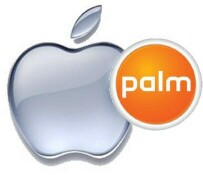
I read last week over at Palm Addicts via Mike Cane's Blog that Apple wanted to purchase Palm back in the summer of 1997.
Cane posted a link to an article entitled "Android: First Impressions" by Jean-Louis Gassée over at Monday Note. In the article, Jean-Louis Gassée noted:
A perhaps little known fact: in the Summer of 1997, Steve Jobs called Eric Benhamou, 3Com's CEO (the company owned Palm). "Give me the Palm and come and join my Board of Directors. Only Apple can make Palm a true consumer brand." Nothing happened. Apple's foray into the product segment had to wait ten more years.
Palm Infocenter is also reporting on this story. Kris Keilhack has some interesting comments regarding the story:
1997 was a dizzying period in the rise of Palm during its early years as the company struggled for an identity and autonomy under US Robotics and the eventual 3Com acquisition and subsequent spin-off. The dated but still compelling book "Piloting Palm" is an essential read for anyone interested in this fascinating time in Palm's history.
Given Apple Newton's tragic struggles with not only its computer line but also with its Newton and eMate handhelds during this period, it's no wonder the firm did not pursue Palm as aggressively as they possibly could have. Apple was a company facing very bleak prospects in the years surrounding the Gil Amelio regime and the continuing until Apple's breakthrough iMac success of 1998.
I guess we can only ask ourselves, "What might have been"? Apple was struggling at one point, and Jon Rubinstein did a lot to help turn Apple around. Before Rubinstein joined Apple in 1997 as senior vice president of hardware engineering and a member of its executive staff, Apple had just lost $816 million, and their profits were waning along with their reputation as an innovator. At Apple, Rubinstein was responsible for hardware development, industrial design and low-level software development. He contributed heavily to Apple's technology roadmap and product strategy. Finally, Rubinstein embarked on an extensive cost-cutting plan that axed both research projects and engineers. Expenses were cut in half.
Apple is now at the top of the heap, and Palm seems to be struggling. Now Rubinstein is at Palm where he is also cutting costs and showing his innovative side.
No, Apple didn't buy Palm. But Palm has Apple's former Rubinstein as well as some other former Apple employees. Could Palm someday be back at the top of the heap? Seems that Palm's future hinges on its upcoming, next generation platform "Nova".